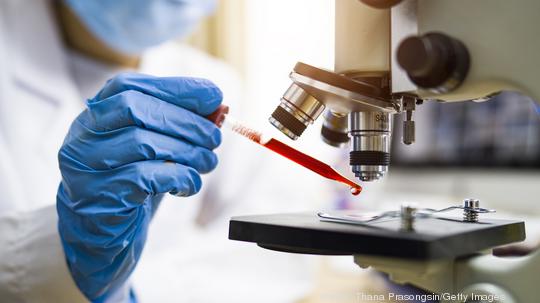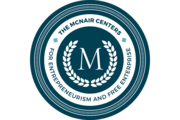
Houston remains the top Texas market for life sciences talent in 2023, though it hasn't cracked the top 10 nationwide.
A new report from CBRE ranked Houston No. 13 out of 25 major U.S. metro areas, matching the Bayou City's placement in the 2022 report. CBRE used the total number and per-capita concentration of researchers and annual college graduates with life sciences-related degrees in each market to determine the rankings.
In 2022, Houston had 8,480 total life sciences jobs, including biochemists, biomedical engineers and medical scientists.
In 2021, 1,832 Houston-area students completed either a bachelor’s, master’s or doctorate in biological and biomedical sciences, making up 6.5% of graduates across the top 25 markets. Nearly 70% of those graduates completed bachelor’s degrees. These figures are an increase from the previous year's report, which found 1,341 local graduates in the same fields.
Traditional coastal powerhouses Boston and San Francisco remained at the top of the rankings, joined by Washington, D.C., and Baltimore; New York and New Jersey; and San Diego in the top five. Seattle, ranked No. 9, and Atlanta, ranked No. 14, were the only other metros besides Houston to stay in the same rank as last year. The Boston-Cambridge market had 36,450 total life sciences workers in 2022.
Houston remains above Austin, ranked No. 16, and Dallas-Fort Worth, ranked No. 19, in CBRE’s report. Austin rose from No. 18 last year, while Dallas fell from the No. 16 position.
One noteworthy nationwide trend was the growth of digital analytics and data scientists' presence in the life sciences industry, which jumped 101% from 2017 to 2022. CBRE cited the growth of artificial intelligence and machine learning in the sector as a contributing factor for that growth. In 2022, Houston had 980 data scientists in the life sciences industry, making up 11.5% of all local life sciences workers.
Several biotechnology companies have made moves to expand their manufacturing and laboratory space in Houston in the past 18 months. Lonza Group Ltd., a Switzerland-based contract development and manufacturing organization, completed a 15,000-square-foot lab space expansion in February, which will allow the company to host more clients manufacturing cell and gene therapies. Behnam Ahmadian Baghbaderani, Lonza’s head of process development for cell and gene therapy, credited local economic development organizations such as the Greater Houston Partnership for helping funnel local talent to the company.
“We believe that there are a lot more opportunities to bring talents and also cutting-edge sciences, which will require talented people and [will provide] new opportunities for the local organizations, schools and academia, to receive training,” Baghbaderani said in a previous interview.
Other organizations are hoping to attract more companies to consider Houston by consolidating services that life sciences companies rely on, such as manufacturing space and business advice. CTMC, a joint venture between the University of Texas M.D. Anderson Cancer Center and San Francisco-based National Resilience Inc., completed its own 2,000-square-foot expansion in April, and CTMC CEO Dr. Jason Bock said Houston’s central location and population size make the city an attractive candidate for clinical testing and contract manufacturing.
“I think we can expect to see at least 10 more announcements of companies moving cell and gene therapy manufacturing headquarters to Houston,” Bock previously told the Houston Business Journal. “If you want to have a center of manufacturing, well, we are centrally located. I think more companies will look for contract manufacturing organizations here or build their own manufacturing.”
Another piece of the puzzle comes from infrastructure investment. Noteworthy developments in life sciences infrastructure in Houston include the Texas Medical Center’s recently announced 500-acre BioPort campus, which will focus on cell and gene therapy as well as pharmaceutical manufacturing. Additionally, the TMC’s Helix Park, which is set to open its first phase in late 2023, is already searching for tenants for its research buildings.
In November, Houston-based Hines announced Sino Biological Inc. as the first tenant for its 53-acre Levit Green life sciences complex near the TMC. The campus's first phase — a five-story, 294,000-square-foot laboratory and office building — will include a 7,000-square-foot conference center, a 5,800-square-foot fitness center, a 3,500-square-foot café and restaurant space, a dedicated incubator space, tenant terraces and activated outdoor seating areas. Sino has leased about 10,000 square feet of commercial lab and office space and is expected to move in during the third quarter of 2023.
Levit Green's first phase is part of a broader nine-building master plan for the site, which will offer a mix of research facilities, office, retail, residential and outdoor amenities. In all, the complex will have a total of 4 million square feet of leasable space.
Elsewhere, San Jacinto College will open a biotechnology training center at its campus in Generation Park, a 4,300-acre master-planned commercial district in northeast Houston. In December, the college announced it signed a memorandum of understanding with Ireland's National Institute for Bioprocessing Research and Training to provide training programs.
Houston-based McCord Development, the developer behind Generation Park, told the Houston Business Journal in March that San Jacinto College is only leasing part of the future 65,000-square-foot cell and gene microtherapy facility, which will thus have space for other tenants. In fact, biotech is a major priority for the next phase of Generation Park. McCord plans to build a project called BioHub Two to cater to biopharma manufacturing companies. The 45-acre master-planned campus will be able to accommodate multiple tenants. While BioHub Two is still in the design phase, McCord said current plans include buildings that start at 75,000 square feet and go up from there.





